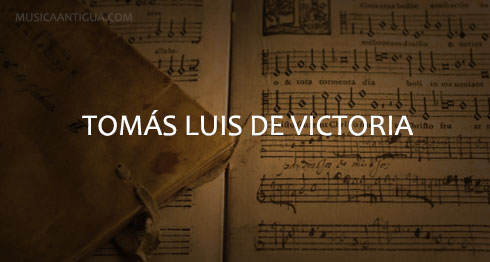4th Centenary of his death
Acción Cultural Española, in partnership with other institutions, is remembering Tomás Luis de Victoria (1548-1611) on the 4th Centenary of his death with a programme of activities that will give audiences the chance to hear the Ávila-born composer's works in a festival of music both within Spain’s borders and abroad, and to learn more about his life and output on a summer course. Tomás Luis de Victoria's music goes beyond the boundaries of the polyphonic Renaissance, its balance and purity, containing early suggestions of baroque expressivity.
Trained in his hometown as a choir boy, in 1565 he went to Rome to perfect his musical knowledge and prepare for the priesthood. In the Holy See he joined the Collegium Germanicum, founded by the Jesuits, where he was taught by teachers such as Palestrina, the influence of whose music can be heard in his early compositions. In 1575 he was ordained a priest, and three years later he joined the Congregation of the Oratory founded by St Philip Neri, alongside his fellow Spaniard the singer and also composer Francisco Soto de Langa. In 1587 he returned to Spain where, under the patronage of Philip I, he was appointed chaplain and chapel master of the Convent of the Royal Discalced Nuns, in the service of Empress Maria, the king's sister. Victoria's output is limited in volume and comprises only sacred music: masses, motets, hymns, psalms and magnificats. His profound and sincere religious convictions give his works a distinctive character, great technical purity, an intense dramatic quality and a passionate expression which some authors have not hesitated to compare with the sense inspired by the poems of his contemporaries Santa Teresa de Jesús and San Juan de la Cruz.









